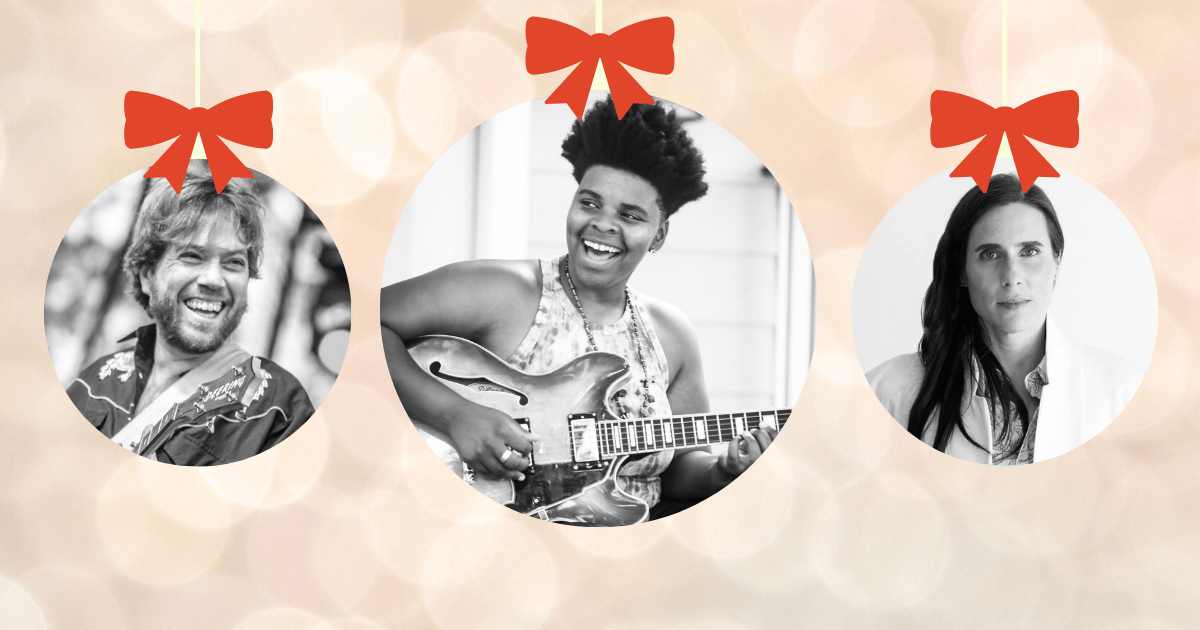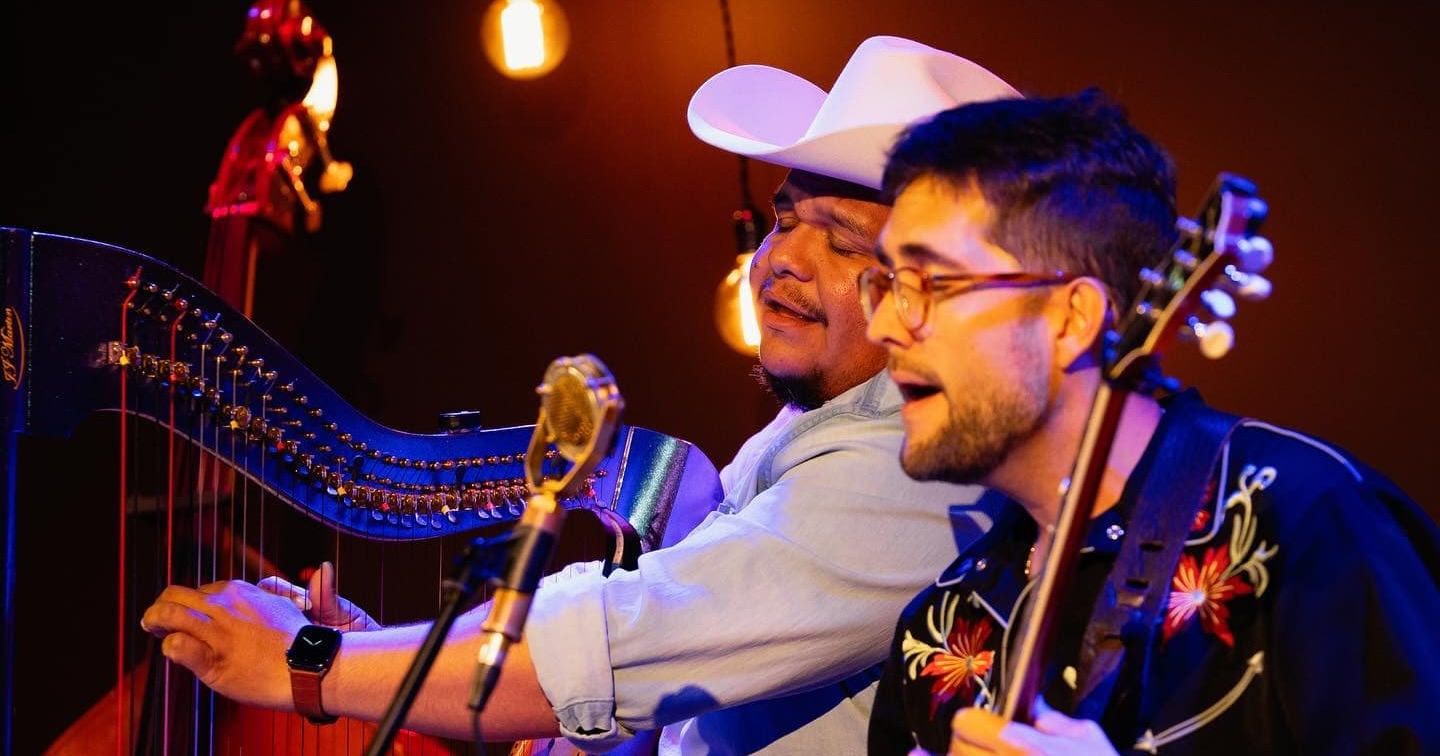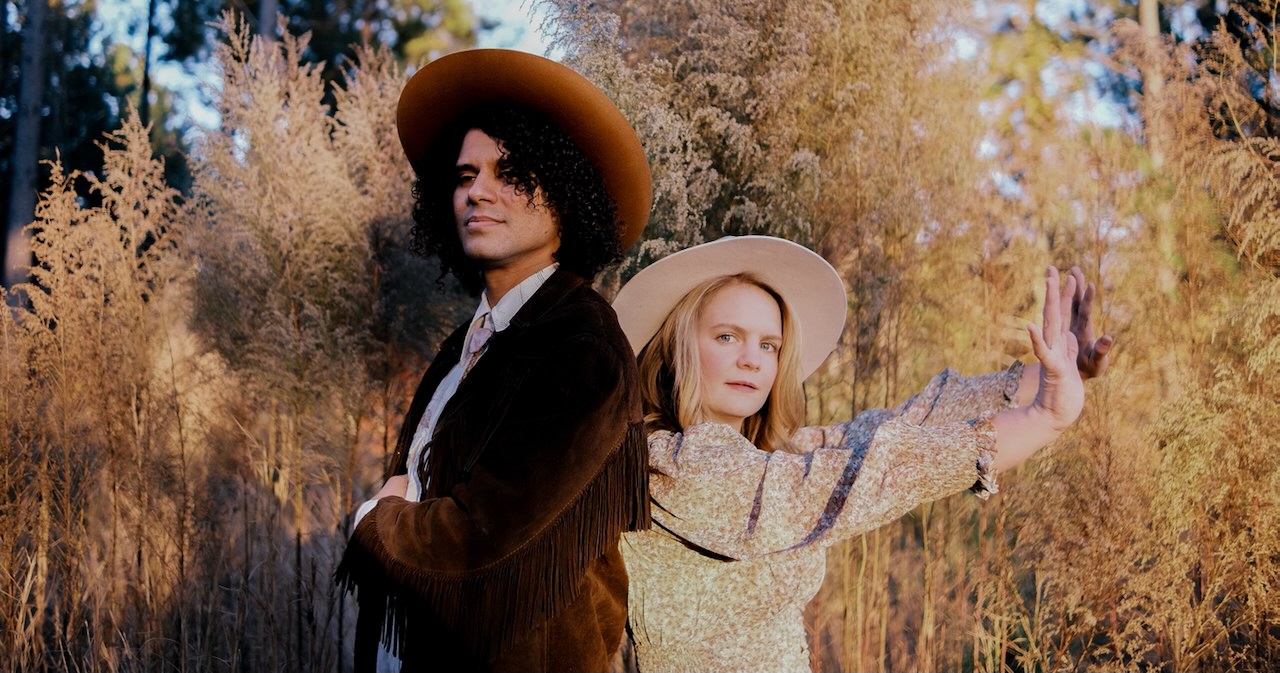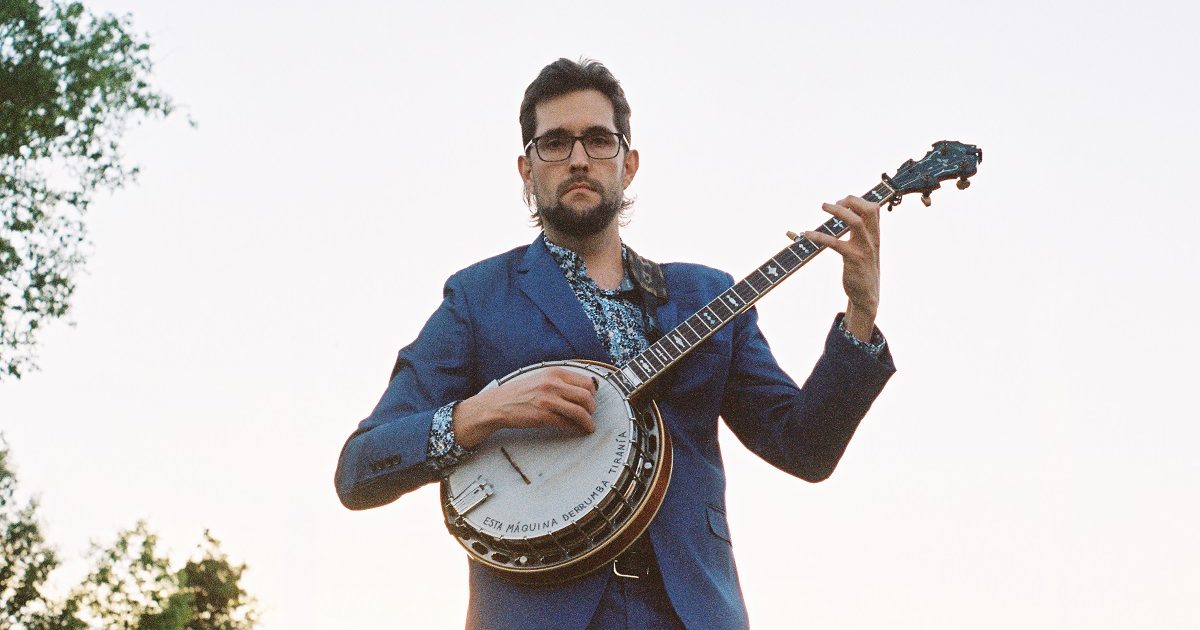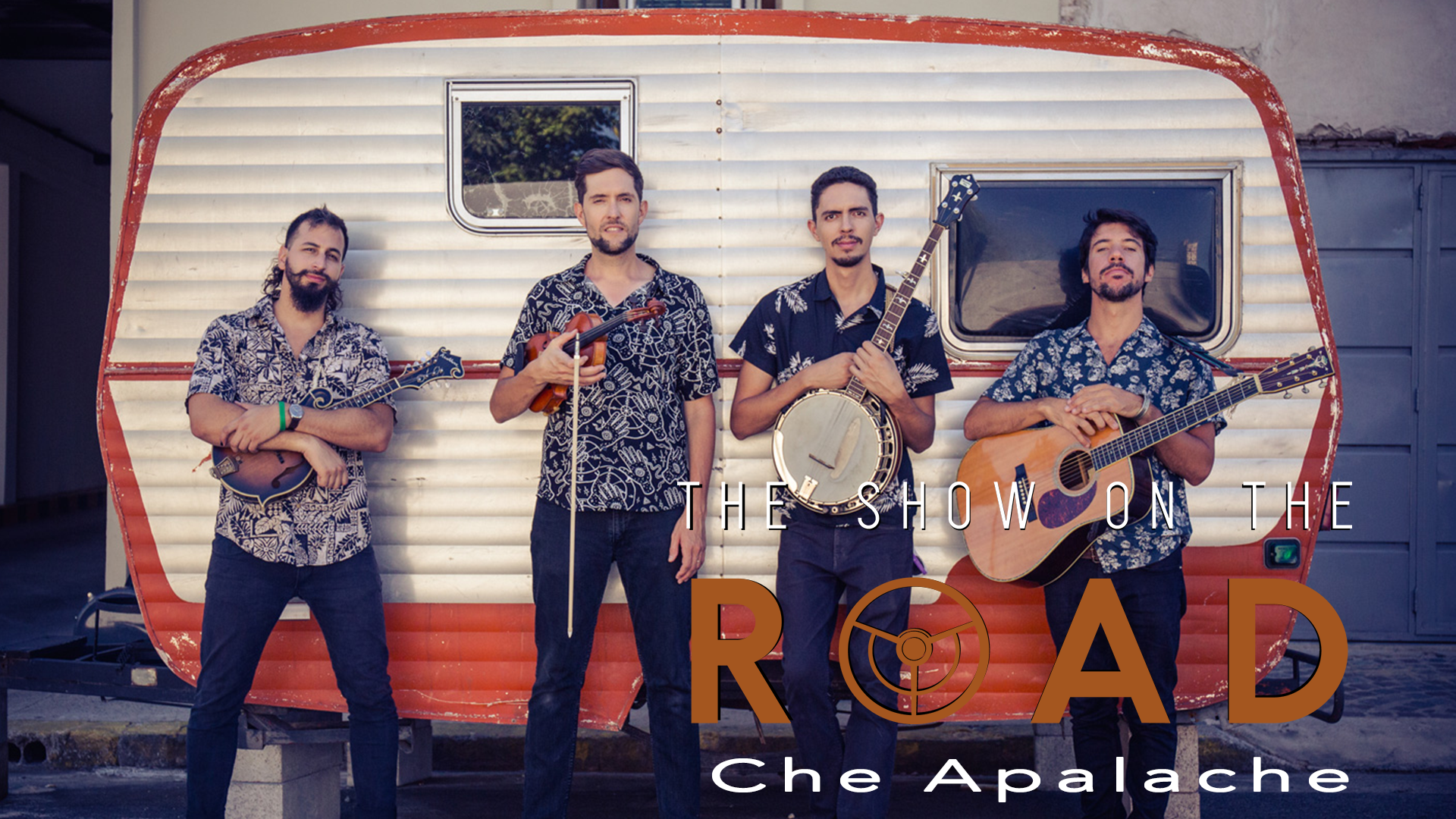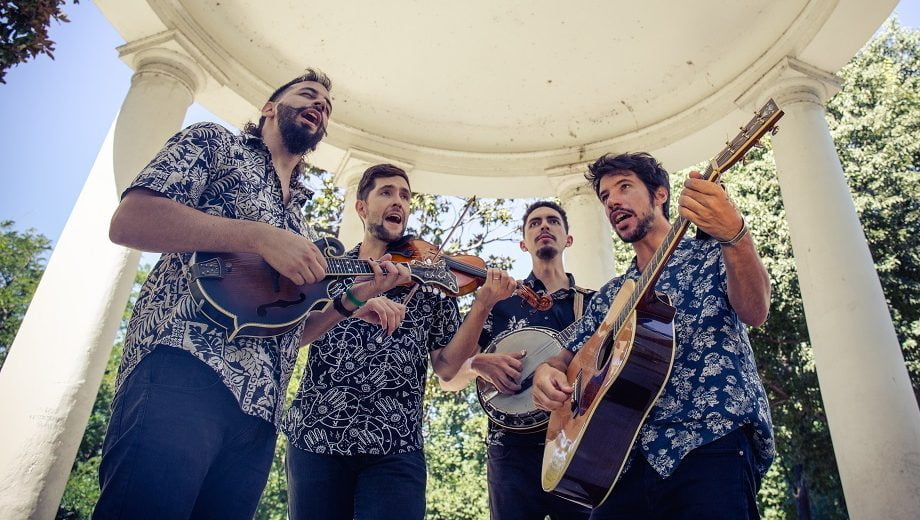Hanukkah has begun, advent calendars have barely three weeks left, and days will start getting longer when we reach winter solstice in merely 13 days – but who’s counting? As we lean further and further into the coziest, roots music-iest time of year, we’re rounding up our favorite seasonal and holiday albums, tracks, and shows each week on BGS Wraps. Scroll to find this list in playlist form, plus don’t miss our Classic Holiday Album Recommendation of the week.
We’ll be back next Friday with more BGS Wraps! Until then enjoy some hot cider or some eggnog and some delightfully festive bluegrass, country, and roots music.
Hayes Carll and Melissa Carper, “Christmas in Prison”
A perennial favorite penned by none other than John Prine, “Christmas in Prison” is a rare country Christmas song that can be sung year-round. Like your favorite holiday movie that’s actually not specifically a holiday movie – Die Hard? Little Women? – this is a song so classic, so iconic, that it demands recognition across the calendar and not merely in December. Hayes Carll and Melissa Carper join together on this brand new rendition and they do the song justice, for sure.
Joy Clark, “Gumbo Christmas”
As most holidays are, Christmas is its own familial and cultural melting pot, and guitarist and singer-songwriter Joy Clark highlights her own New Orleans traditions with “Gumbo Christmas.” It’s a song with a recipe both literal and figurative, a combination all of the best holiday dishes know intimately. That Big Easy horn section is fit to carry us into 2024.
CMA Country Christmas (December 14, ABC; December 15, Hulu and Disney+)
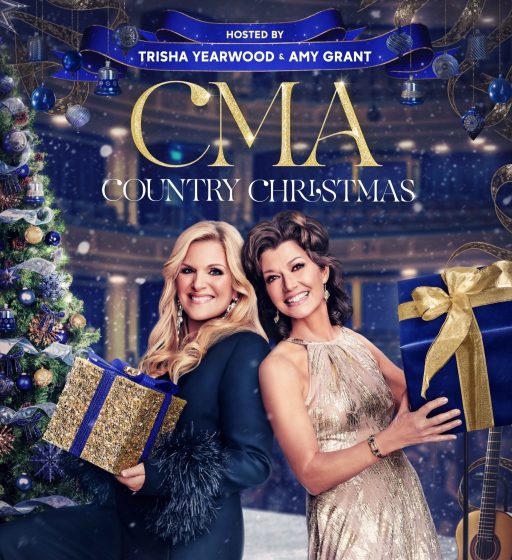
The queen of Christmas in Nashville, Amy Grant, is co-hosting this year’s CMA Country Christmas TV special on ABC with none other than Trisha Yearwood. With performances by The War & Treaty, Ashley McBryde, Jon Pardi, reigning CMA Entertainer of the Year Lainey Wilson, and more. Tune in on Thursday, December 14 for the live program, or watch the following day – and throughout the season – on Hulu and Disney+. For those of us who won’t make Vince Gill and Grant’s annual holiday residency at the Ryman in Nashville, this show will be an excellent consolation prize.
Rose Cousins, “I’ve Got My Love to Keep Me Warm”
There’s almost no better artist to turn to for delicious melancholia than Rose Cousins. Her new holiday single, “I’ve Got My Love to Keep Me Warm,” demonstrates this fact and then some. Winter songs without a specific religious or traditional bent are too rare, so we especially love this track for its “agnosticism” and relatability. Why care how much it may storm, if you’ve got your love to keep you warm? We hope you are surrounded by love this holiday season, and however lonesome or joyous you’re feeling this year, Cousins’ voice will envelope you like a toasty hug.
Bridget Kearney, “Don’t Think About the Polar Bear”
A vibey and meditative new track from Lake Street Dive bassist Bridget Kearney is another holiday track of the Die Hard sort – not demonstrably seasonal, but it works so we’re accepting it with open arms into our wintry celebration. The accompanying animated music video is whimsical enough to be a fitting addition to any lineup with The Grinch, Rudolph, and all of your other favorite Christmas animated TV specials. If your intention is to not think about someone this holiday season, you might just find them wandering across your mind – so don’t think about the polar bear, instead.
The Kody Norris Show, “Mountain City Christmas”
The territory surrounding Mountain City, Tennessee, in the Blue Ridge Mountains of East Tennessee, Western North Carolina, and Southwest Virginia is home to most of the farms that grow most of the Christmas trees for the eastern seaboard of the United States. It’s more than fitting, then, to take this nostalgic and magical Kody Norris Show-led journey through the picturesque counties they call home. What’s more bluegrass than singing about snow, home, family, faith, and rhyming “there” with “Christmas carol”?
Larry & Joe, “Mi Burrito Sabanero”
Bluegrass banjo player and fiddler Joe Troop and harpist, multi-instrumentalist Larry Bellorín are Larry & Joe. Their new holiday single, “Mi Burrito Sabanero,” is a funny, raucous, and enjoyable version of a quintessential Latin American holiday tune written by Venezuelan harpist and composer Hugo Blanco. Much of Troop’s work connects the dots between Latin folk music and American roots music, crafting idiosyncratic amalgamations often expected to be more disparate and dissonant than they really are. For this track, Bellorín set aside the harp and picked up the cuatro, with Troop adding twin fiddles and banjo in another instance of remarkable latingrass fusion.
Maddie & Tae, We Need Christmas
Maddie & Tae, of “Girl in a Country Song” fame, recently released an extended cut of their 2020 holiday EP, We Need Christmas, adding three new tracks – each classic Christmas carols – to the fan favorite collection. Both women are now married and starting families and there’s a confidence and ease they’ve grown into at this phase of their careers. Easily some of the most interesting pop country being made, and certainly an excellent holiday manifestation of the form.
Brenda Lee, “Rockin’ Around the Christmas Tree”
For the first time in her 60+ year career Brenda Lee has scored a Number 1 hit on Billboard’s Hot 100 chart with her truly unforgettable holiday single, “Rockin’ Around the Christmas Tree.” How she supplanted Mariah Carey’s “All I Want for Christmas,” we’ll never know, but we are so glad for Lee that she’s notched this incredible milestone even at this late stage in her lifelong music-making. She first recorded the iconic track as a thirteen-year-old and in an emotional video posted by Billboard and to her social media, you can tell she never imagined this song would be the gem it is in the crown of her music career. Congratulations, Brenda Lee!
Kaitlyn Raitz, “River”
Cellist, composer, and arranger Kaitlyn Raitz released a stunning, instrumental string-centered cover of Joni Mitchell’s “River” a handful of weeks ago, a timely tune drop for those of us struggling to navigate the holidays without Mitchell’s catalog available on a certain streaming service. Lush and romantic, Raitz’s cut of the track is high concept while down to earth, like a perfect Christmas Eve program at a local church, stained glass bookended by poinsettias and candles. A must-add for your instrumental holiday playlists or perfect to soundtrack your cookie icing party or frenzied gift swaps.
Matt Rogers, Have You Heard of Christmas?
BGS Wraps would be simply incomplete without a laugh-so-hard-you’re-crying option, supplied here by comedian Matt Rogers’ holiday outting, Have You Heard of Christmas? With guests such as Muna (swoon-a), Bowen Yang (Rogers’ co-host of the hit podcast, Las Culturistas, known from SNL), and Leland, Have You Heard of Christmas is pure chaos, absolutely unhinged. Melodrama meets the chronically online. Joe’s Pub, dragged through 54 Below. When you’re offered aux this year at your holiday gatherings, put this one on. We dare you.
Andy Thorn, High Country Holiday
Banjoist Andy Thorn was known as Leftover Salmon’s banjo player, before a video of him serenading a wild fox went mega viral and eclipsed all other entries on his resumé. Thorn – who is a self-professed Christmas fanatic – has recently released a brand new holiday album, High Country Holiday, drawing on inspiration from his Colorado backyard and his musical community to put together a bevy of carols and one bespoke original, “The Bells of Boulder.” Add it to your stack of bluegrass Christmas records! It’s destined to become a classic in that category.
Tim and James, A Tim and James Christmas
Los Angeles-based string duo Tim and James – Tim Reynolds and James Spaite – have followed up their popular debut, Lemon Tree, with a holiday EP, A Tim and James Christmas and it’s already a favorite of ours. These simple duets feel fully realized, even while they remain contained, and draw on folk, new acoustic, and chambergrass influences. The kernel within Tim and James’ music – that took their songs from beginning as a regular Tuesday collaboration to tens of thousands of streams – is on full display. There’s something entrancing about this bare bones, four-song collection.
Our Classic Holiday Album Recommendation of the Week:
Béla Fleck & the Flecktones, Jingle All the Way
Each year we are reminded of the sheer genius of Béla Fleck & the Flecktones’ Jingle All the Way. It’s a Christmas album we return to again and again and we know we aren’t the only ones – it was chosen by O magazine (yes, Oprah’s publication) as 2008’s Best Christmas Album and it peaked at Number 1 on the contemporary jazz charts. Béla and the Flecktones’ cultural impact was certainly solidified by the time Jingle All the Way had released, but this album – perhaps more than any other music by the group in the 21st Century – cemented their broad, far-reaching influence.
Photo Credit: Joy Clark by Nkechi Chibueze; Rose Cousins by Lindsay Duncan; Andy Thorn courtesy of the artist.
